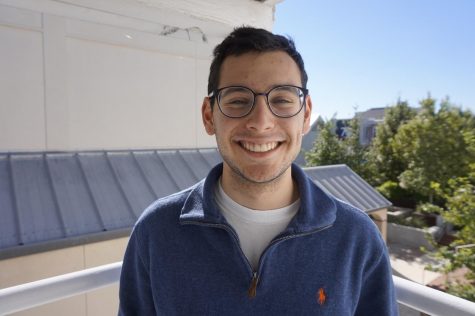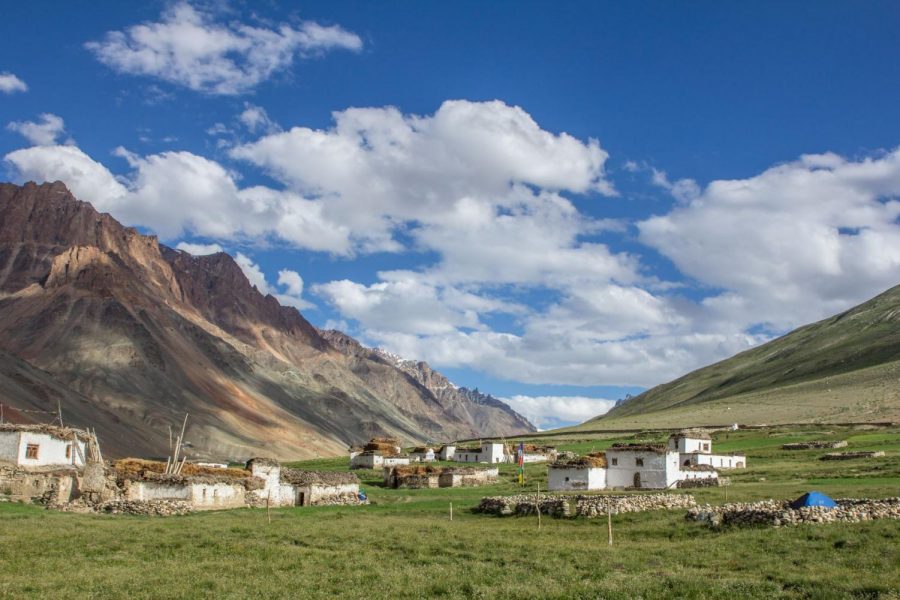An Alum Lights Up a Remote Himalayan Village
Huddled in a pitch-black, mud house nestled in the Himalayan mountains, Nabil Kapasi (‘16) had never felt so out of his element. Accustomed to his air-conditioned dorm room and 4G LTE, he was off the grid. Majoring in Science, Technology, and International Affairs at Georgetown University with a concentration in energy and the environment, Nabil naturally gravitated to the Global Himalayan Expedition, a ten-day adventure to build solar microgrids for a secluded Ladaki village.
But as Nabil likes to point out, his trek through the Kashmir region, which separates India and Pakistan, was not your average humanitarian mission. For starters, the program required various essays and interviews as part of an extensive application. A similarly rigorous process enables Paras Loomba and Jaideep Bansal, two former corporate employees at the program’s helm, to select villages eligible to receive a human necessity—light. Nabil admired how Global Himalayan Expedition would only construct solar microgrids in villages with a collective bank account and shared ledger system which ensures that each household is committed to the maintenance of the new-fangled grid. The program’s strict specifications align with Nabil’s philosophy that “just giving to poor people will not lead to sustainable development.” Furthering this “teach a man to fish” ethos, the program also trains two women in the village as technicians, providing a pathway for reliable employment.
While Nabil nobly installed solar panels on a straw roof over 14,000 feet above sea level, the ultimate irony dawned on him: while he had never been closer to his ancestral homeland physically, he felt foreign, a linguistic and cultural outsider. When communicating with villagers, he required a duo of translators who could convert Ladhaki into Hindi, and then into English. Rather than the product of diaspora rekindling with his roots, Nabil cemented his identity as an American while perched atop the Himalayas. By the end of our conversation, Nabil and I struggled to reconcile this contradiction. But when we compared our diametrically opposed ancestries—Indian by way of Uganda versus Jewish and Italian—the idea of an America bounded by ideals instead of ethnicity or language resonated with me. Despite the conflicting versions of America perpetuated in this election cycle we can all agree that providing light to those shrouded in darkness is still a cherished American value and one that, hopefully, never wavers.

A Keystone senior, Evan aims to showcase the diverse talents and opinions of Upper School students in a multi media platform. He came up with the idea...

